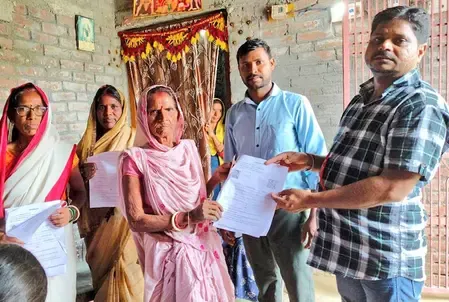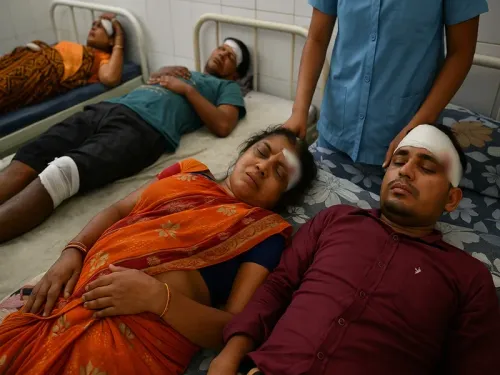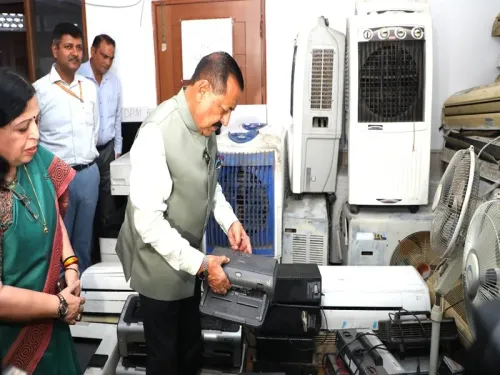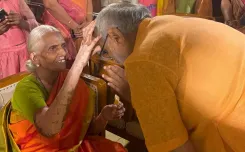Why Are Some Leaders Attempting to Retain Deceased and Duplicate Voters in Bihar's Electoral List?

Synopsis
Key Takeaways
- Special Intensive Revision (SIR) aims to update electoral rolls.
- Over 52.3 lakh voters found ineligible in Bihar.
- Political leaders' motives for keeping ineligible names raise questions.
- Booth Level Agents play a crucial role in the verification process.
- Election Commission committed to ensuring accurate voter lists.
New Delhi, July 22 (NationPress) In a perplexing turn of events, certain national and state leaders from various political factions in Bihar are advocating for the retention of deceased, moved permanently, duplicate, and untraceable voters in the proposed electoral rolls. This push comes despite evidence from the ongoing Special Intensive Revision (SIR) indicating that these individuals are ineligible.
As of July 21, official data from the Election Commission reveals that the SIR initiative has identified over 52.3 lakh electors who do not reside at their registered addresses statewide. Among these, approximately 18.5 lakh were confirmed deceased, 26 lakh had permanently relocated, while around 7.5 lakh were found to be registered at multiple locations. Additionally, 11,000 voters remain untraceable.
Despite this, some political figures have raised objections against the removal of these names from the voter list, a stance that experts and political analysts are treating with caution.
Sources indicate that the primary goal of conducting a Special Intensive Revision is to refine the electoral rolls and guarantee that only eligible individuals are included. Critics argue, “How can any party justify the retention of names belonging to those who are deceased or have permanently moved?”
Political analysts suspect that this unusual demand might stem from deeper political motives. Many believe there’s a clear attempt by some factions to stall or undermine the revision process. If the parties’ own Booth Level Agents (BLAs) have verified the absence of these voters and shared this information with the Election Commission, how can the leadership now advocate for their re-inclusion? This contradiction raises significant questions regarding intent.
Over 1.5 lakh BLAs appointed by 12 major political parties have actively participated in the verification process. Officials state that these agents have displayed “remarkable cooperation” during the house-to-house verification efforts led by Booth Level Officers (BLOs).
Rather than supporting their field-level workers—many of whom belong to their own party—some leaders appear to be undermining the process, as noted by a source. This behavior isn’t merely obstructive; it seems to be a deliberate attempt to politicize a citizen-centric initiative.
Observers assert that if party leaders genuinely believe that legitimate voters have been mistakenly removed, they should provide specific examples instead of advocating for a blanket inclusion of ineligible individuals. Otherwise, it may appear that they have ulterior motives for maintaining ghost voters within the system.
With the SIR process ongoing, the Election Commission has reaffirmed its dedication to ensuring that no eligible voter is overlooked and that no ineligible names are retained.









